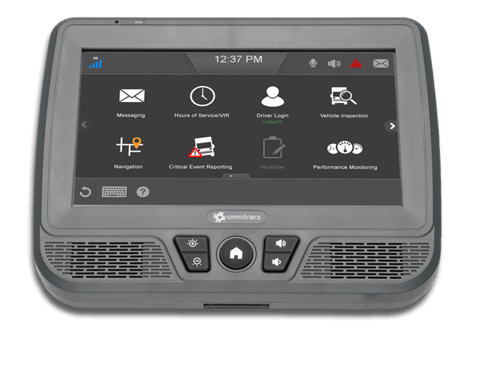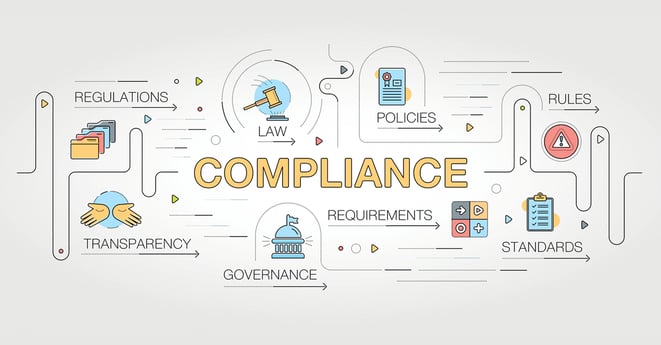REDWOOD LOGIN
Redwood PortalLTL
SCS
SCS Support
Rockfarm
There are hundreds of regulations that apply to freight carriers and transport companies. For even the most skilled carriers, it can feel like a logistical nightmare to try to stay compliant. This is especially worsened by changing government administrations that don’t have experience in the transport industry.
Trucking is one of the most regulated industries in our nation. It’s arguably even more regulated than food and drugs. Despite the high number of rules, these regulations are usually in the best interests of drivers and citizens alike. The government wants to protect truckers and other drivers from safety hazards on the road.
However, some experts in the field feel that federal regulators haven’t been in the industry themselves, so they don’t know how to make the laws. They don’t actually know the environment or what the day-to-day looks like on the inside. Moreover, government regulations don’t always translate into actual changes. New administrations make changes that take a long time to go into effect—and sometimes the changes don’t always show the response that the administration expects.
In fact, that’s why a lot of groups blame federal regulations for the current trucking capacity crunch.
Whether or not that’s true, though, transport companies need to stay compliant. Compliance means following regulations that maintain the safety and standards of your company in accordance with the law.
Below we go through the basics of everything you need to know about the external environment surrounding the LTL sphere—and how you can make sure your company stays compliant.
The federal body that oversees trucking regulation is the Federal Motor Carrier Safety Administration (FMCSA). This is a subsection of the U.S. Department of Transportation.
The regulations that apply to transportation are under Title 48 of the code of Federal Regulations (CFR). This includes all state laws, motor carrier regulations, and principles and procedures. Everything you need to know about trucks, truck drivers, driver rights, transport, shipping, qualifications, and safety is in this rulebook.
What are some of the most recent changes to the LTL sphere that impact your business, whether you’re a transport company or retailer?
There are two major regulations that have recently shifted the way the trucking industry does business: ELDs and hours-of-service.
 In December 2017, ELDs officially became a mandatory part of the trucking experience. Electronic logging devices (ELDs) attach to the engine of the truck to automatically monitor the time that drivers spend on the road. This helps ensure that drivers don’t go over the maximum number of hours that they’re allowed to drive.
In December 2017, ELDs officially became a mandatory part of the trucking experience. Electronic logging devices (ELDs) attach to the engine of the truck to automatically monitor the time that drivers spend on the road. This helps ensure that drivers don’t go over the maximum number of hours that they’re allowed to drive.
Before ELDs, there were concerns with falsified paper logbooks, where drivers were reporting that they were driving fewer hours than they were. This is because drivers are typically paid by distance—not by hours on the road. So it’s in the best interest of the driver to drive consistently with minimal breaks to optimize their salary.
However, this causes serious health and safety concerns on the road. This can lead to drowsy driving, which is the number one cause of trucker-related incidents on the job.
The impacts of ELDs are immense. This technology putting a new price tag on trucking equipment, but it’s also changing the salaries of truckers. Drivers are being forced to drive fewer hours in the week, which is cutting down on carrier costs. Trucking companies are forced to respond with new methods of delivering quickly and safely.
See FMCSA’s FAQ about ELDs here.
The government currently limits truckers to drive no more than 11 hours per day followed by 10 hours of rest. (This is what ELDs are meant to reinforce). This was recently updated to reflect all of the fatigue-related trucking crashes that are causing serious injuries and fatalities on the road.
However, some experts feel this hours-of-service regulation doesn’t take into account all of the things that go wrong on the road. There can be problems at shipping or receiving, congestion, traffic, construction, and other delays. These delays waste hours that the driver is on the clock—without making any money. With truckers paid by the mile, not the hour, drivers’ salaries can quickly diminish with an hours-of-service rule.
Experts are calling for a new way to regulate fatigue and drowsy driving without impacting the pay and quality of life for drivers.
There are constantly new updates to the trucking industry regulations. We expect some of the following changes to start popping up in the next few years to match the changes in how the shipping industry in North America is functioning.
Regulations will be related to:
• Online Self-driving trucks
• Automatic emergency braking
• “Gig” transport
• Trailer under-rides (for collisions)
• Usage of artificial intelligence and IoT
• Sleep apnea and other sleep disorders
• Blockchain usage
There may even be regulations popping up that prevent vertical domination by Amazon or other companies.

Whether you’re a shipping company or a retailer, you want to ensure your logistics processes are fully compliant. But even transport companies struggle to keep up with all of them—so how are you expected to?
You need someone who’s trained in trucking compliance. Your staff is the frontline and backline to ensure that your business is properly following all regulations. They need to be trained and organized to follow these procedures.
We recommend having someone on your team who is specifically hired to ensure that every part of your value chain is compliant with the hundreds of trucking regulations.
It’s also highly recommended to bring in a third party shipping carrier or consultant. An organization like LTX Solutions lives and breathes these regulations every day. Working with a compliant organization can confirm your own compliance in turn, especially when backed with supply chain blockchain technology.
A number of the recent regulations in the shipping industry are related to tech advancements. Whether it’s ELDs or artificial intelligence, the government wants to ensure that companies are using this technology appropriately.
But that doesn’t mean you should shy away from technology. In fact, this only proves the prevalence and importance of transport tech. Get on board with the best technologies if you want to get ahead and stay compliant.
One of the best ways to ensure you’re constantly up to date with new transportation industry info is by following major blogs. The LTX Solutions blog is a great center to get updates and opinions, so you can always be informed about what’s going on.
Sign up for email updates now to get transportation news delivered right to your inbox. No spam, no annoyances. Just news, opinions, and studies that directly relate to your business.